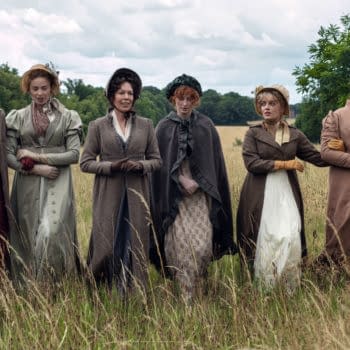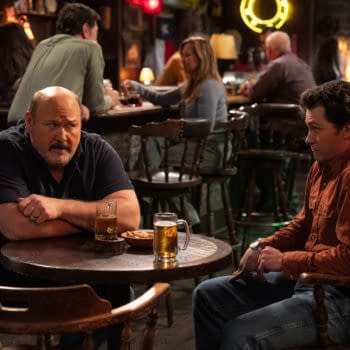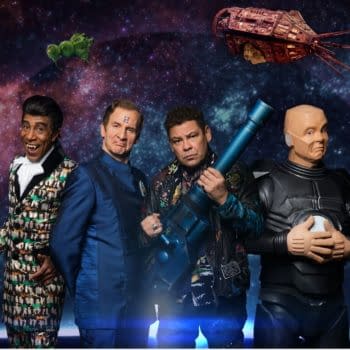Posted in: TV | Tagged: censorship, chinese science fiction, Liu Cixin, streaming, TenCent, The Three-Body Problem, three-body
The Three-Body Problem Ep. 11 Review: Intense But Still Censored
Tencent's The Three-Body Problem Episode 11 is brutal and intense but still heavily censored in its depiction of the Cultural Revolution.
The eleventh episode of The Three-Body Problem is the one every fan of the book has been waiting for. They thought it couldn't be done, that would be censored. They're kind of right. The episode begins Ye Wen Jie's experiences during the Cultural Revolution that leads to pivotal moments in the story but waters it all down. The episode is only half an hour long, at least ten minutes shorter than the other episodes in the series, possibly because of censorship. There's a lot of speculation that ten whole minutes were cut out while others were reshot to water down the brutality of government officials during that era.
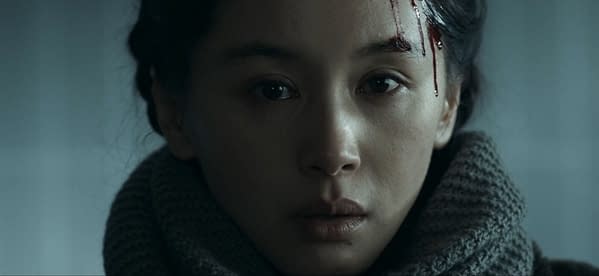
The Betrayal That Spawned The Three-Body Problem
So young Ye Wen Jie (Wang ZI Wen) helping Ba Mulin write a letter quoting Rachel Carson's book "Silent Spring" comes back to bite her in the worst way. She's called to the office at the tree form and finds the political officer accusing her of writing it. Ma Bulin had sent it to the Central Committee only for the letter to be denounced as bourgeois and counterrevolutionary, and he blamed the letter on her rather than admit he wrote it, and she merely transcribed it.
How Censorship Shifts the Blame
All the duplicity and moral cowardice of the Cultural Revolution become embodied in Ba Mulin and him alone. He commits the one act of violence against her when he only slinks away guiltily in the book. Bai Ke's performance in the scene where Ba Mulin lies and denounces Ye Wen Jie is layered with rage, fear, and guilt, as he knows exactly what he's doing to save his own ass. Wang Zi Wen's performance in the show is remarkable for saying almost nothing while her eyes show her heartbreaking, what little faith she had left in humanity shattering forever. If you've read the book, you'll know that Ba Mulin's act of cowardice has doomed the human race. If you haven't read the book, sorry for the spoiler, but… you should read the book.
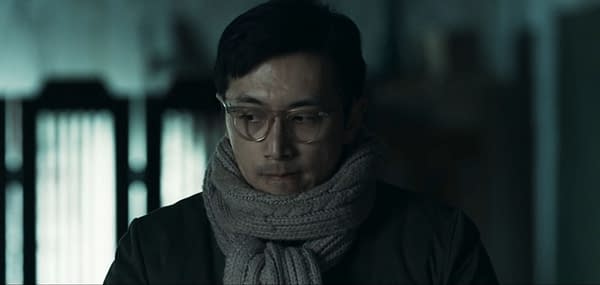
Whitewashing Brutal Reality
Her brutal treatment at the internment centre is glossed over. The episode doesn't show the beatings or the cold water being poured over her in the wintry weather, only her shivering in her cell. The interrogator who first treats her with kindness, then turns on a dime to become vicious and openly abusive is only shown as being officious, her violence completely cut out.
The show makes Wang Miao its moral centre by showing him telling Ye what Ba Mulin did to her was wrong, not what the system did to her was wrong. That is how the writing subtly assigns blame to individuals instead of the government at the time – it's subtle but precise. The elderly Ye, aka Science Grandma, seems at peace, saying that time has made past tragedy fade away and she's made her peace.
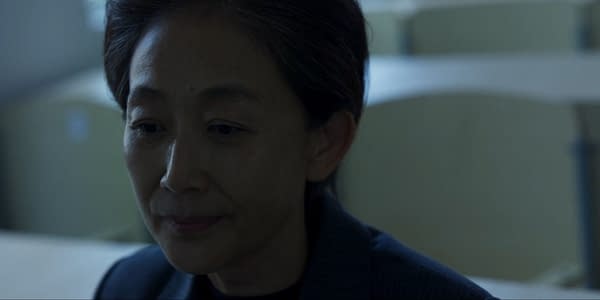
The flashback sections of the series are carried by Wang Zi Wen's subtle, restrained performance as the young Ye Wen Jie. It's remarkable that she and Chen Jin look so similar, their performances in synch to make you believe they're both the same person. The episode ends with young Ye Wen Jie waking up to find herself in a helicopter being flown to a mysterious location. The backstory that explains everything is coming.
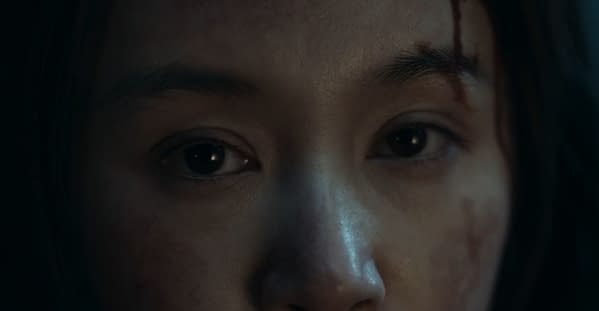
"Mistakes Were Made"
All the censorship in the episode waters down the story and the forces that drove one character to condemn humanity to extinction. This is because the Chinese government may admit the Cultural Revolution was a "mistake" but doesn't want its younger citizens to know exactly how terrible a mistake it was. Granted, it was a different regime at the time, but the government wants to be seen as a single continuity, so that becomes dicey when it comes to teaching history. People in China can still ask relatives what happened to get the details, but not from school. The Cultural Revolution allegedly killed over a million people, brutalized millions more, and destroyed families where siblings and parents betrayed and denounced each other.
In the original novel The Three-Body Problem, Liu Cixin unflinchingly depicted the destruction of Ye Wen Jie's family when her mother and sister denounced her father, and he was beaten to death in a trial session by teenagers in the Red Guard. Movies and TV shows are much more circumspect and cautious because millions more people watch TV than read books. The TV series manages to faithfully adapt the book while pulling back and watering down to get to tell the story of the whole book.
You can watch The Three-Body Problem on Tencent's YouTube channel.





